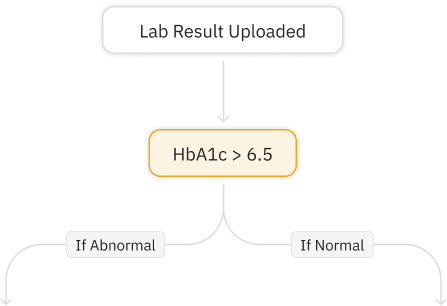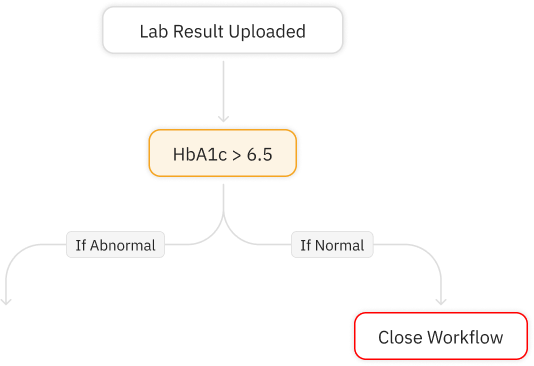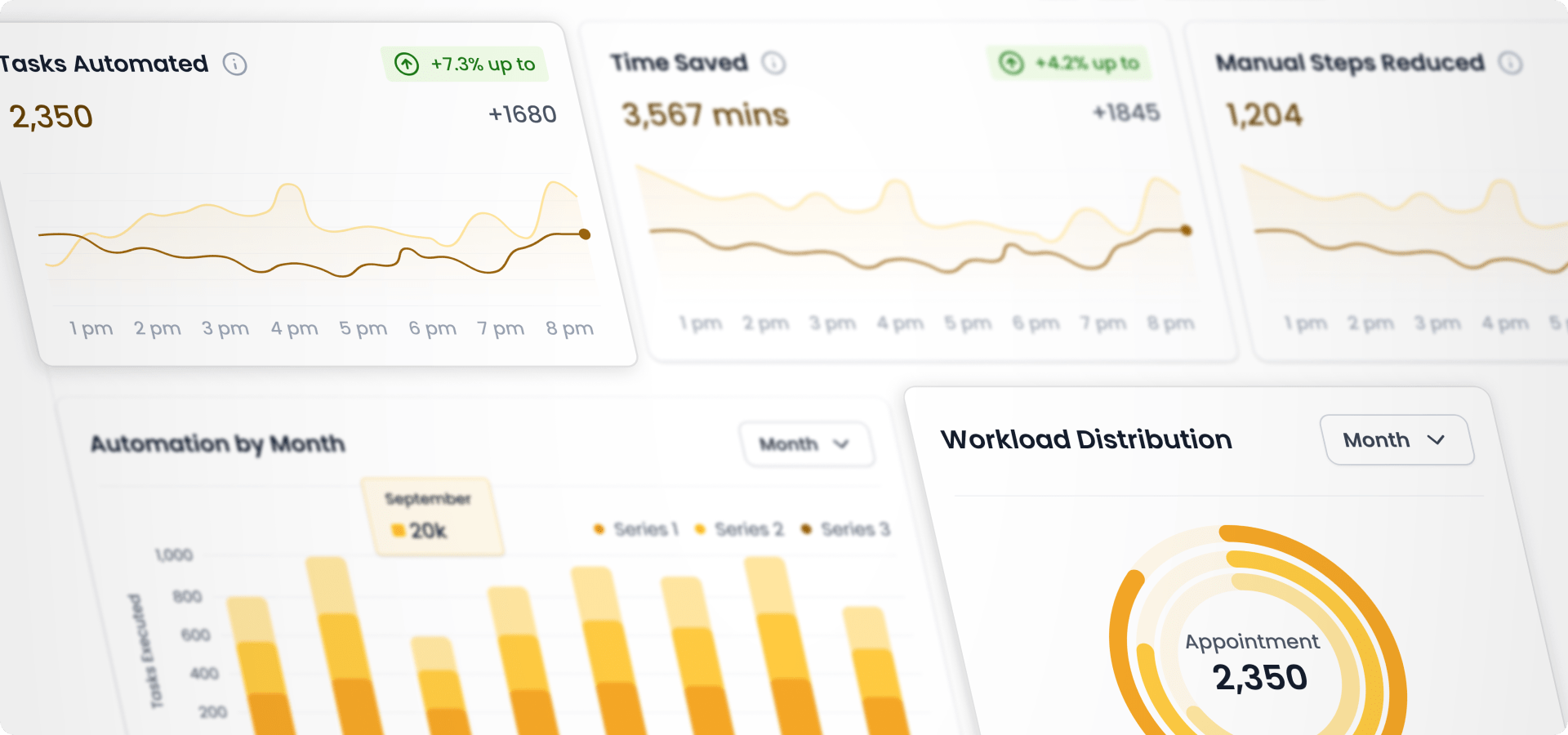The AI Clinical Automation Agent empowers healthcare teams to automate multi-step clinical workflows without writing code. Built for nurses, clinical admins, and physicians, it connects EMR systems, diagnostics, communication channels, billing logic, and follow-up routines through an intuitive interface

Design clinical workflows using a drag-and-drop console that simplifies logic creation for non-technical users.
Build automated workflows by visually connecting prebuilt actions and logic without coding.
Add tasks like vitals entry, doctor alerts, and EMR updates using modular building blocks.
Use conditions to create adaptive care flows.
Preview execution in real time before going live.
Launch flows based on key clinical events.
Initiate workflows from events like Patient Registration, Lab Result Upload, or Missed Appointments.
Ensure immediate action by linking relevant automation to specific triggers.
Reduce care delays and eliminate manual task initiation.
Includes ready-to-use actions to plug into any workflow.
Easily add communication, scheduling, EMR updates, or translation steps.
Supports telehealth session creation, discharge note generation, and care task assignments.
Speeds up implementation with healthcare-specific tasks.
Power workflows with smart decision-making.
Add "If-Then" branches based on vitals, conditions, or patient history.
Enable dynamic responses like alerts for abnormal readings or no-show rescheduling.
Personalize care automation for chronic conditions or complex scenarios.
Deploy and customize common care workflows instantly.
Get started with prebuilt templates like Vitals Escalation, Medication Adherence, and Discharge Planning.
Edit templates to suit specific departmental needs.
Promote faster rollouts and reduce configuration time.
.png)



.png)
Monitor how automated workflows are triggered, executed, and optimized.
Track workflow usage volume and execution frequency.
Analyze automation efficiency by department or process type
Identify underutilized workflows or trigger bottlenecks.
Generate insights to optimize care protocols.

Encrypted data transfers between all components.
Access control for triggers & patient data.
Logging of all automated actions for auditing.
Aligned with HIPAA, GDPR & FHIR standards.